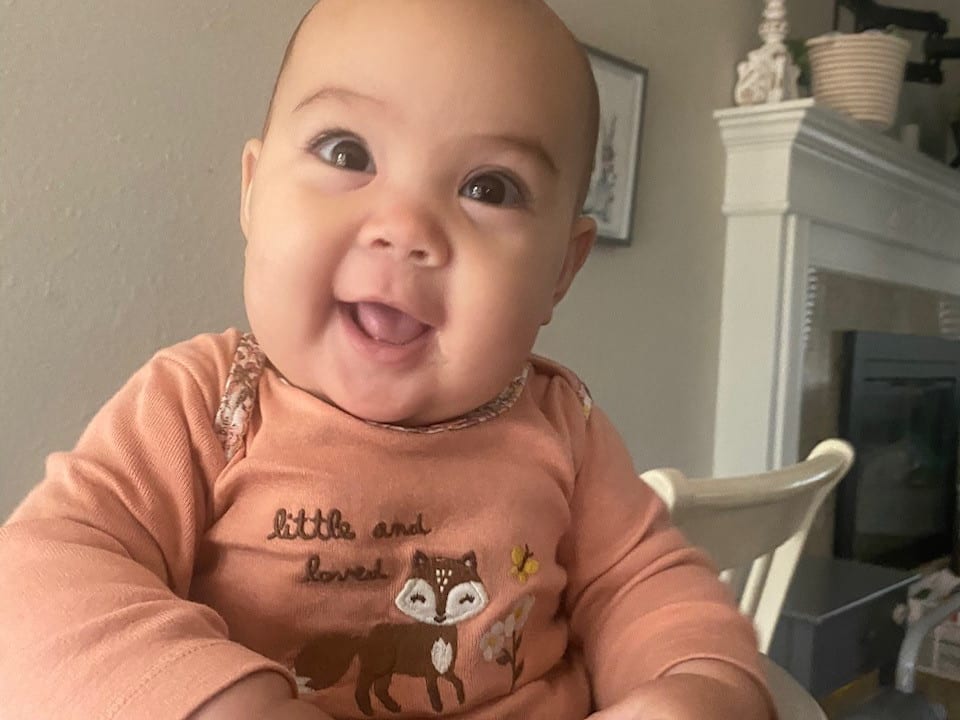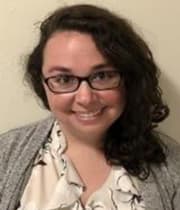Bereavement program helps mother, daughter navigate grief

On Sept. 21, 2022, 6-year-old Ana’s world came crashing down when her baby sister Malia suddenly passed away. With their family reeling, Mom Kelsey sought a lifeline for Ana and herself through Bridges Center for Grieving Children.
Bridges was established in 1988 so that no child grieves alone. The program is part of MultiCare Mary Bridge Children’s Hospital continuum of care and offers support groups for family members of individuals fighting critical illnesses or hospitalizations, bereavement groups for children and adults, and community education and training.
Donations through Mary Bridge Children’s Foundation ensure all services remain available for Bridges members at no cost to them.
“I was a school counselor in Tacoma schools, so I actually had referred families there to Bridges or to look into it,” Kelsey explains. “But you never expect to experience an untimely death yourself.”
Support in a group setting
Age-appropriate support groups are at the heart of Bridges, where participants share memories, express feelings and connect with peers going through similar experiences.
For Ana, the activities and camaraderie have been a source of healing.
“They do a lot of play and a lot of games, artwork and crafting, which is so age appropriate because sometimes they wanna open up and sometimes they don’t,” Kelsey says. “Using play to talk about your loved one is kind of the best way for that age group to do a therapeutic setting.
“Just being there, being a part of the activities, and being with the other kids is just so meaningful and helpful to Ana,” Kelsey continues.
Ana has regularly attended Bridges meetings for almost two years and left an impression on facilitator Derrick Vershave, along with her fellow support group members.
“What stands out to me about Ana more than anything is her incredible perception and insight,” Vershave shares. “She’s very aware of the importance of being in group and the weight of her grief journey, and extends that care to the other children and adults around her by being so conscientious and compassionate.”
Not just for kids
A concurrent support group is also held for adults caring for grieving children, as they’re often grieving themselves.
“The purpose of the adult groups is to find and bridge connections between other adults who may be going through similar struggles with their own grief and that of their children,” writes Susan Hayes, a Bridges group facilitator.
While Kelsey also underwent individual therapy after the death of her daughter, it was in Bridges that she found her support system.
“Bridges is my preferred group and the people that I feel the most comfortable talking to,” she reflects. “Being a parent of loss and sitting together and going around the circle and being face to face has just been so helpful.”
Life today
Though Ana’s and Kelsey’s lives are forever changed, Kelsey shares that things aren’t as dark as they once were.
Ana too still has tearful moments when thinking about her sister, but Kelsey describes the now 8-year-old as incredibly well-adjusted and resilient. She’s also a force to be reckoned with on the soccer field.
“We’re so lucky to have an amazing family and our parents and siblings — all of those people just helping show her love and caring for her,” Kelsey says.
Kelsey herself feels seen by community members who generously give to Bridges.
“I have so much gratitude and appreciation and thank yous to anyone who donates to the program,” she says. “I think, as parents of loss, we’re forgotten about in society. The fact that we have this program is so helpful to those of us who are participating in it.”
Understanding that it’s often taboo to show or hold grief in public, Vershave further underscores the importance of donating.
“By donating to Bridges and helping keep it running, you’re allowing families across Washington — yes, some travel great distances every week — to have a place they can be their full selves in a society in which they cannot, at their most vulnerable time in their lives,” he explains.




